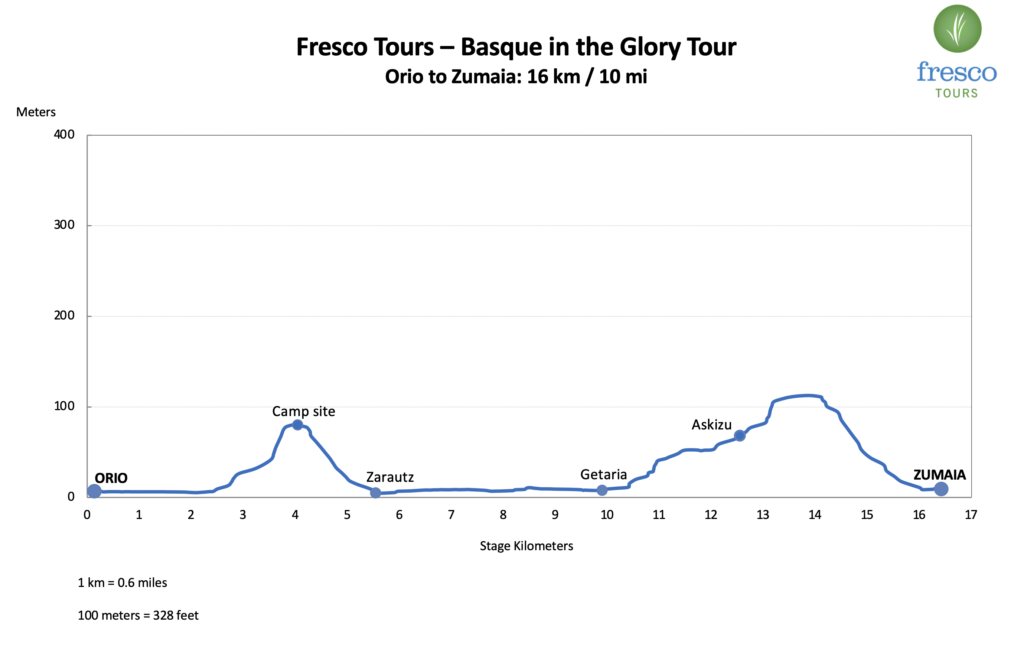After an energizing breakfast, we return to Orio to begin our walk today. This stage, from Orio to Zumaia, may be one of the most spectacular on our tour. We pass through the town of Zarautz, known for its long sandy beach, vibrant atmosphere, and excellent surf conditions. Zarautz Beach stretches for approximately 2.5 kilometers (1.6 miles) and is one of the longest beaches in the Basque Country. It is known for its golden sand and consistent waves, making it a favorite spot for surfers of all levels. One of the notable events in Zarautz is the Zarautz Pro, an international surfing competition that attracts professional surfers from around the world.
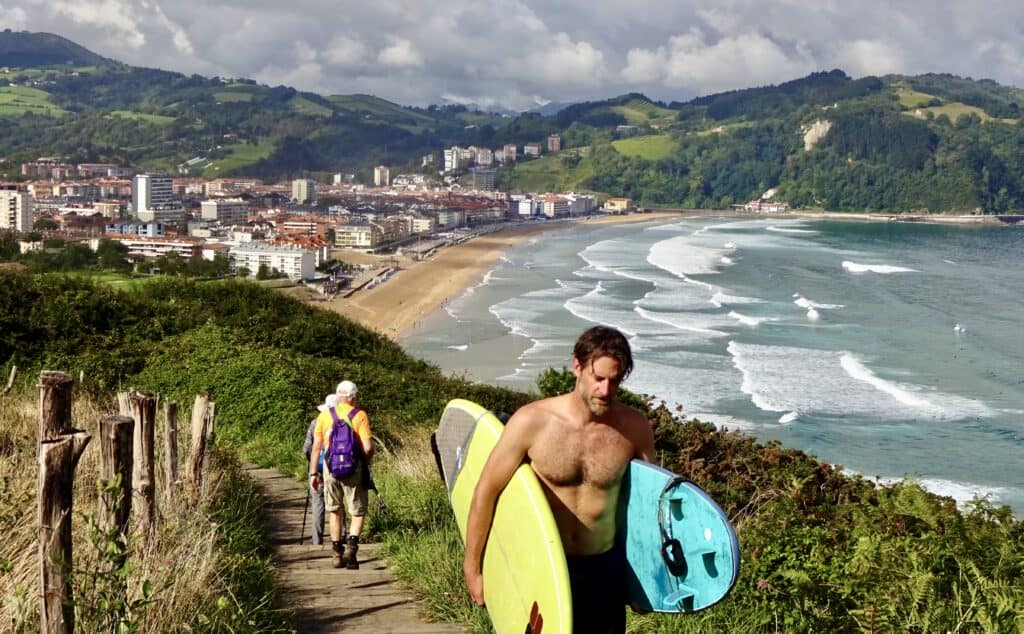
Zarautz has a lively and charming town center with pedestrian streets, historic buildings, and a vibrant atmosphere. The Church of Santa Maria la Real, an impressive Gothic-style church dating to the 15th century, is a notable landmark in the town center. The Old Town features narrow streets, traditional Basque architecture, and a variety of shops, bars, and restaurants.
After exploring Zarautz, we will continue along the seaside walkway to Getaria, with its cobblestone streets and historic buildings, including the 15th century Gothic Church of San Salvador. Getaria is also the birthplace of the 16th century explorer, Juan Sebastián Elcano, the first person to successfully circumnavigate the globe as a member of Ferdinand Magellan’s expedition.
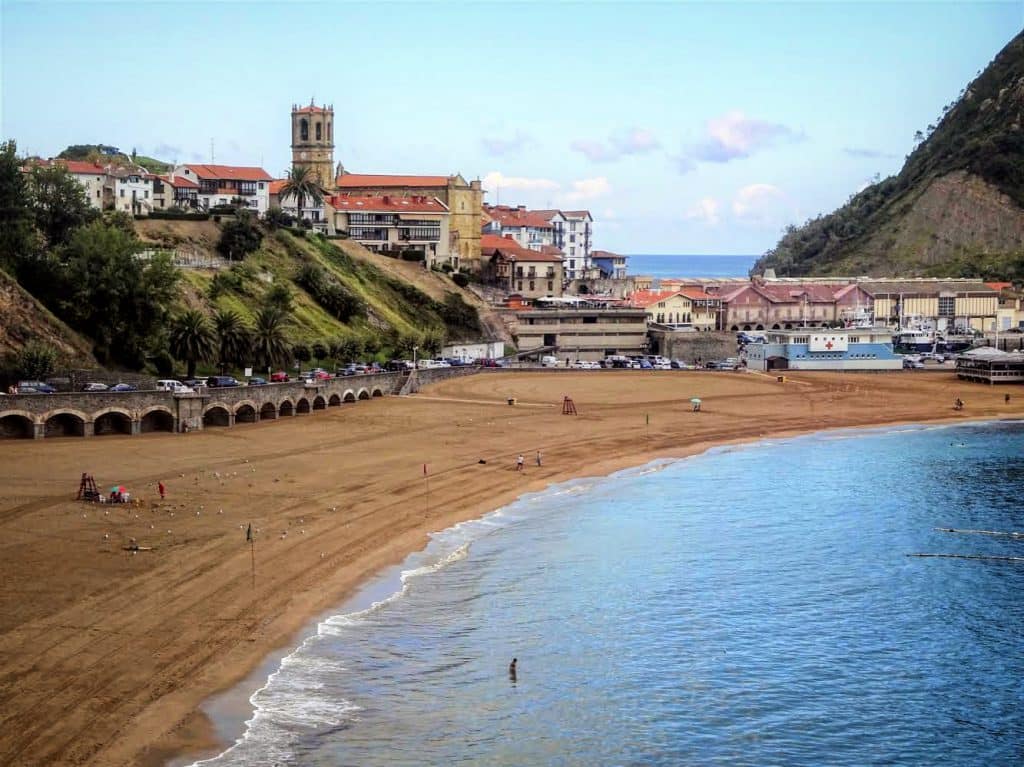
Another prominent attraction in Getaria is the Balenciaga Museum, dedicated to the fashion designer Cristóbal Balenciaga, who was born in the town. The museum showcases his works and provides insights into his innovative designs and influence on the fashion industry.
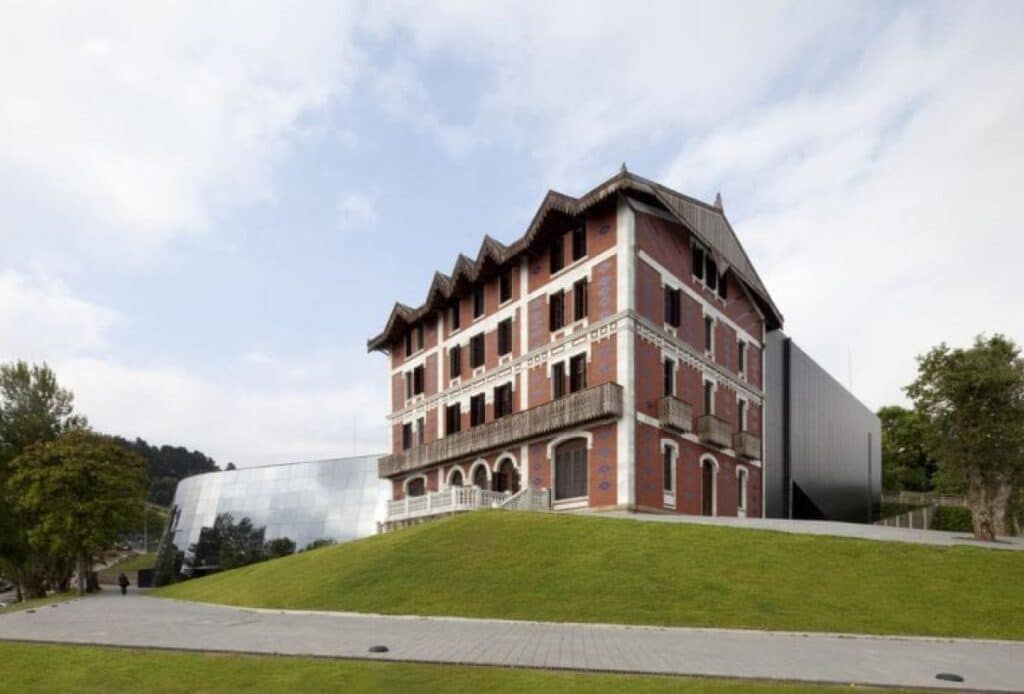
Getaria is also renowned for its culinary offerings, particularly its seafood and grilled fish. The town hosts numerous seafood restaurants, offering fresh catches from the Bay of Biscay. Additionally, Getaria is closely associated with the local white wine called Txakoli. The town is surrounded by vineyards that produce this crisp, slightly sparkling wine.
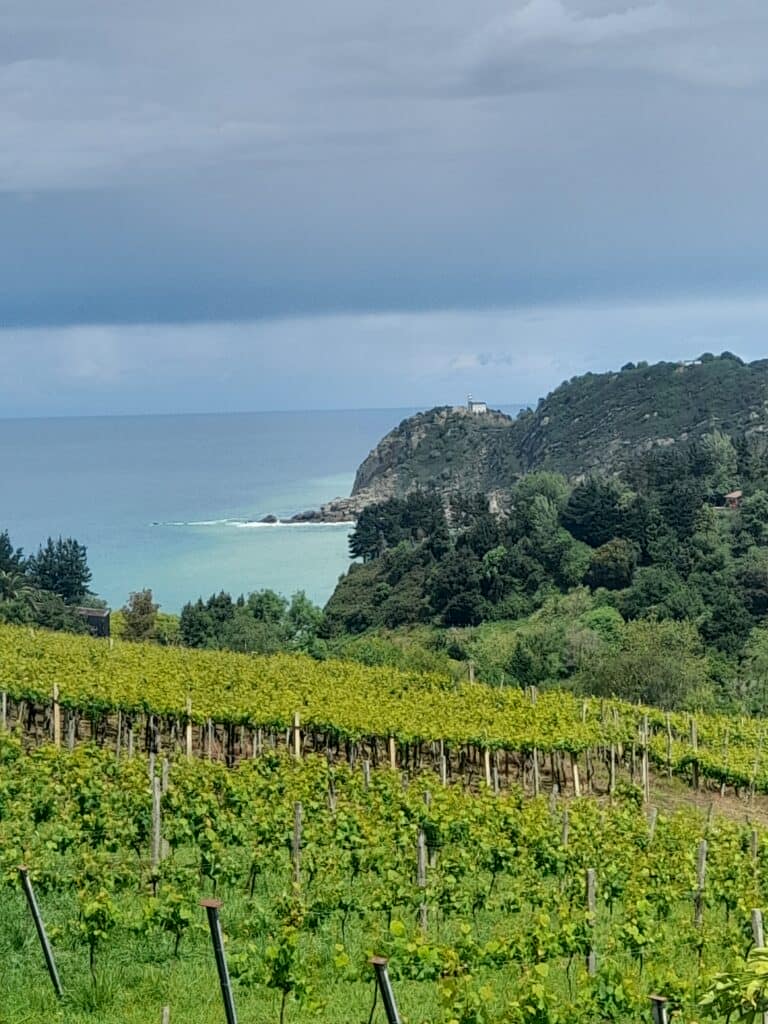
After strolling through Getaria, we head out of town and soon arrive at one of our favorite picnic spots on the Camino Norte. Here we enjoy lunch before continuing on to Zumaia.
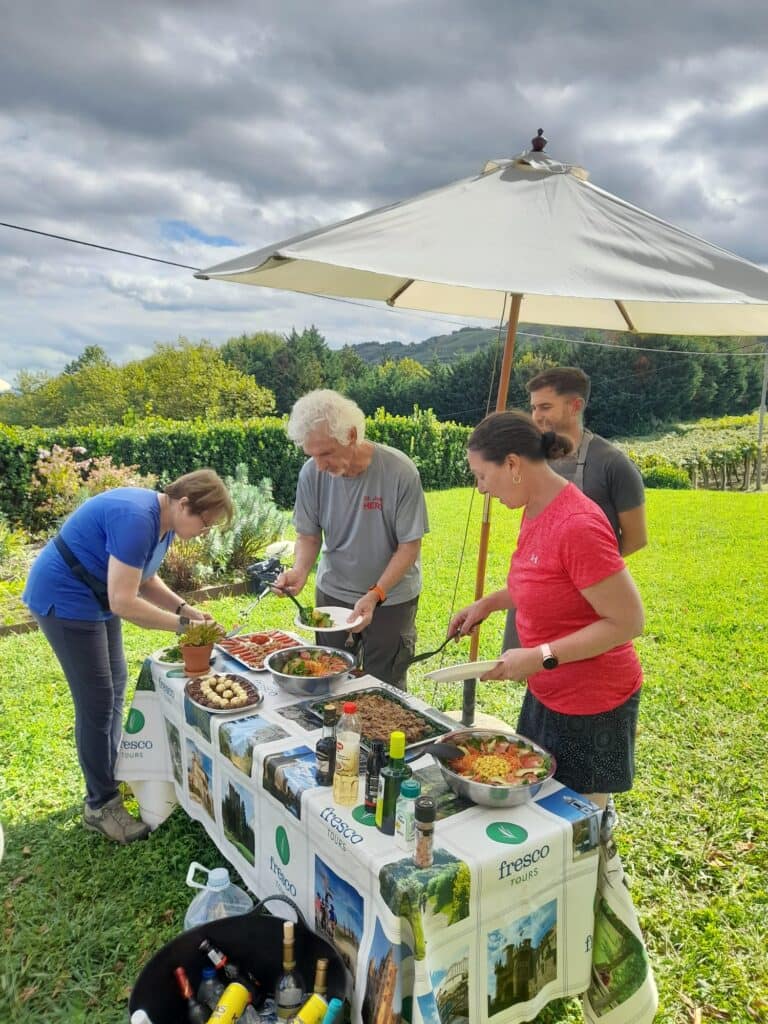
One of the main attractions in Zumaia is its unique geological feature known as the “flysch,” a series of rock layers formed over millions of years, creating intricate patterns and stunning coastal cliffs. These geological formations have attracted scientists, geologists, and nature enthusiasts from around the world.
The town itself has a charming old quarter and Gothic-style Parish Church of San Pedro whose impressive tower is a local landmark.
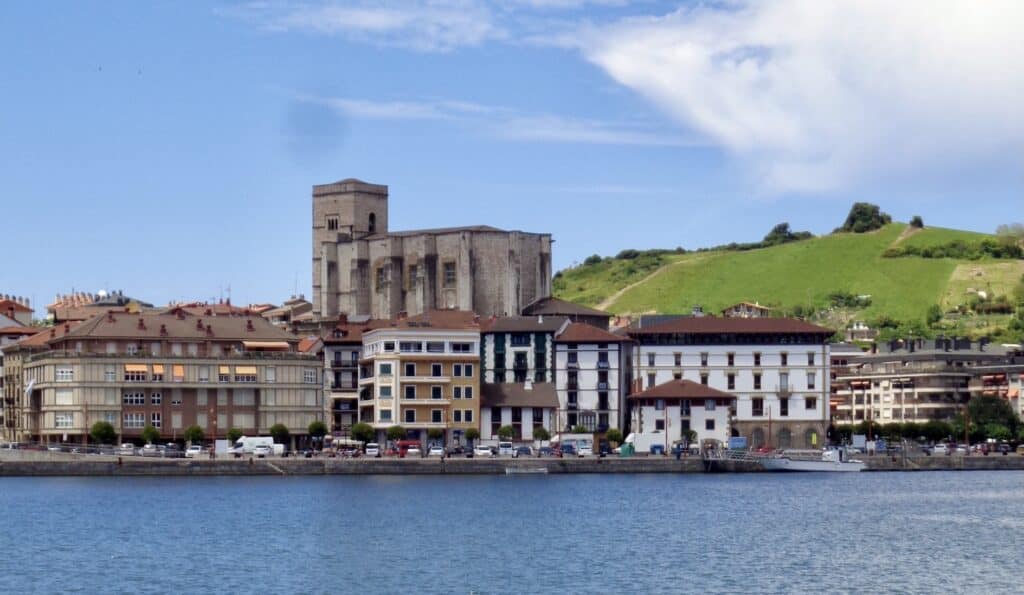
After a long day of exploring coastal towns, it is time to sit down for our evening meeting and dinner before resting our feet for another day along the Way tomorrow!
